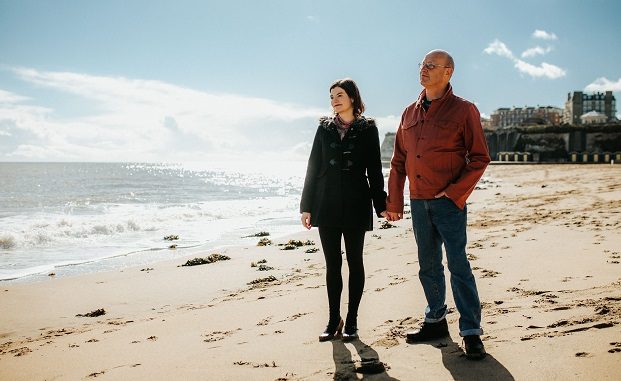
There are some advantages to having a permanent invalid for a spouse – a cast-iron alibi for every social event you don’t fancy chief among them – but so far they seem greatly outweighed by the inconvenience.
Mr Todd has polymyalgia, a condition which causes excruciating pain and stiffness in his shoulders, back and legs. The symptoms can be off-set by massive doses of steroids, which deliver their own delightful set of side-effects – stomach upsets, rashes, bruising, acne, thinning bones, weight gain, insomnia, mood swings; a veritable panoply of varied and unending joy. They also depress his immune system, so that every germ in Thanet seeks out his poor suffering bod, settles down and makes itself comfy, often for weeks at a time.
Neither of us has any experience of ill-health. We’re rubbish at being sick, and completely ignorant as to how to get treatment. We both derive from stout peasant stock, our forebears too driven by necessity to even contemplate anything so bourgeois as an ailment. The last time I saw a doctor was in 1993, when my lung collapsed, rather thrillingly, on an aeroplane, and even that didn’t require medication, just a long length of tubing and ten days bedrest.
Illness has always struck me as a tiny bit self-indulgent, not really cricket, and in consequence, we had absolutely no idea how to cope when it struck. We didn’t know how best to make an appointment with a doctor, still less a specialist, nor even, I kid you not, how to get a repeat prescription. The process seemed shrouded in mystique. But when the steroids run out he’s howling in pain inside six hours; we soon hastened to fill these holes in our knowledge and stockpile the brutes.
This is hardly a novel sentiment, but my goodness, praise be for our glorious NHS. How kind and patient their staff, despite being stretched to their limits and beyond; how generously they take their time explaining and reassuring, even when the waiting room queue stretches far beyond the front door.
Mr Todd is way too ill to work now, so without free healthcare he’d struggle to afford the medication without which his life is impossible. During a bad attack he can’t get out of bed, support his own weight, walk, raise his arms, dress himself, at least not without hours of sweaty effort accompanied by ear-splitting screams. Yet I regularly read accounts of people in the US forcing themselves to try, because without a job they can’t afford treatment. How blessed we are, how precious is our health service, and how fiercely we must fight to defend it.
The moral argument for a free healthcare system, accessible to all, is utterly unassailable. No politician would dare publicly to deny it. Instead, increasingly, they use vague, insidious phrases like “patient choice” to disguise its slow dismantling. It’s happening, right now, and it’s an abomination. Recognise it. Then resist it.

